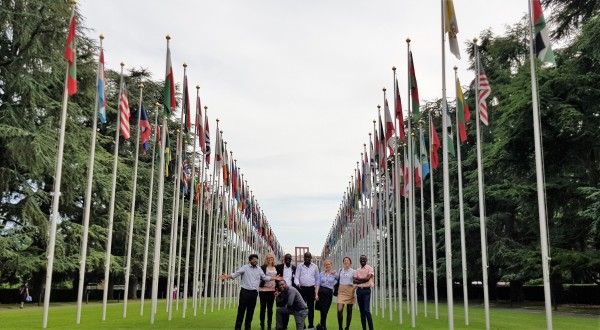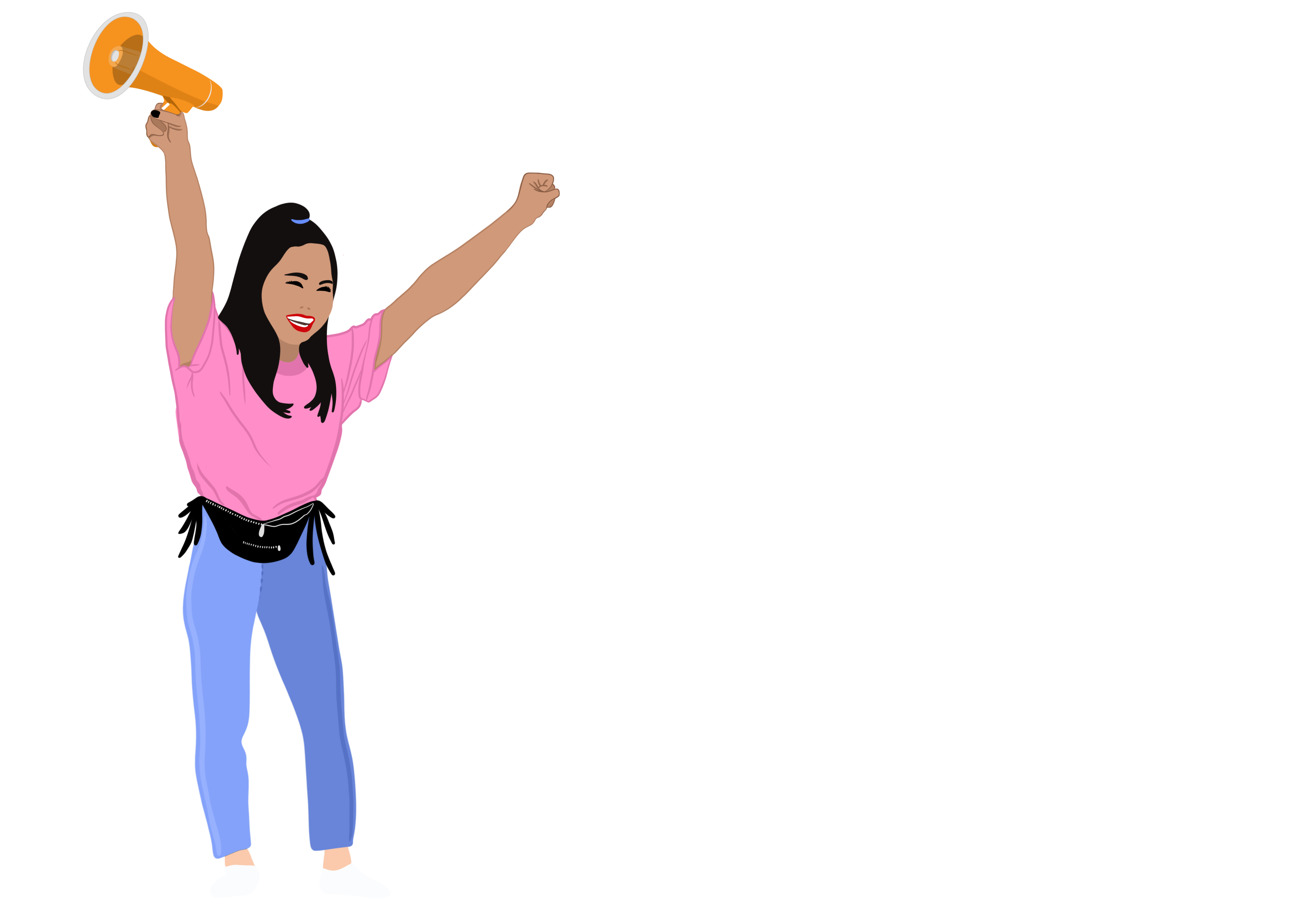Last month, CHOICE advocated at the 41st session of the UN Human Rights Council (HRC). We engaged with three core resolutions; namely Youth and Human Rights, Violence against Women and Girls, and Discrimination against Women and Girls, as well as closely following discussions around the resolution renewing the mandate of the Independent Expert on Sexual Orientation and Gender Identity. These are texts full of commitments, which are discussed and negotiated by states at the HRC. Each year a resolution deals with another theme, making sure that resolutions cover people’s diverse experiences. Want to know more about the different resolutions? Check our previous blog on the HRC.
CHOICE advocates on and engages with these resolutions to make sure that they contain progressive language on Youth and Sexual and Reproductive Health and Rights (SRHR), which we in turn use to hold governments accountable. At the end of the Human Rights Council, which lasts three weeks, countries vote on different resolutions. If they are adopted, countries can be held accountable for implementing these commitments into their policies and programs. Want to know more about the HRC? Interested in the workings of “UN language”? Check out our free resource hub, You(th) Do IT for all the ins and outs about UN advocacy!

So, what happened at HRC41?
During the HRC, CHOICE provided input on the different resolutions. We aimed to include progressive language and commitments on SRHR and youth. We met with delegates, joined the informal meetings where resolutions were discussed, delivered statements and oral interventions on key issues of concern, and engaged with other non-governmental organizations (NGOs), youth-led organizations and civil society organizations to make sure that the resolutions included these references.
Another important part of our work is the capacity strengthening of our partners, who joined us to the HRC as part of our Rights, Evidence, Action program. Our partners work on topics related to SRHR and youth and bring indispensable knowledge and experience to the negotiations. We worked closely together to deliver Youth statements that included concerns from all youths around the globe, engaged with our respective delegations and shared knowledge and experience on the workings of the HRC.
In doing so, we contributed to the HRC adopting strong resolutions that upheld and reinforced standards on, among others, sexual and reproductive health, women’s and girls’ full, effective and meaningful participation, and comprehensive sexuality education.
Resolution on Discrimination against Women and Girls
The resolution on Discrimination against Women and Girls focused on women and girls deprived of their liberty. It covered a broad spectrum of deprivation of liberty, such as detention in institutions to forms of forced confinement due to decisions by families, communities or private groups. The resolution calls upon States to repeal all laws that disproportionately criminalize the actions or behavior of women and girls and all laws and policies that discriminate against them. The resolution furthermore recognizes that this discrimination is rooted in patriarchal gender norms which underpin gender bias and restrict the implementation of frameworks that guarantee women’s and girls’ rights. Importantly, the resolution draws a connection between deprivation of liberty and women’s and girls’ exercise of their sexual and reproductive rights and bodily autonomy.
The resolution is important for you(th), as young women and girls face heightened and unique vulnerabilities to deprivation of their liberties. Furthermore, the resolution recognizes that young women and girls are at a high risk of deprivation of their liberty if they break social norms related to their sexual or reproductive behavior. This year, the resolution also adopted “girls” within its mandate, enabling a closer look at the intersections of gender and age-based discrimination.
Resolution on Violence against Women and Girls
This year the resolution of Violence against Women was themed Violence against women in the world of work. Many workplaces are still not always healthy or safe for women and girls who work. Sexual harassment is, for instance, still a reality for many women and girls. The adopted resolution recognizes that violence against women and girls is a global phenomenon, rooted in unequal power relations between women and men that reinforce gender stereotypes and barriers to women’s and girls’ human rights, such as the right to work. It furthermore states that violence, including sexual harassment and domestic violence, undermines women’s and girls’ ability to work. The resolution also affirmed that the right to control and decide freely and responsibly on matters to sexuality is a human right. It urged states to develop and implement educational programs and teaching materials, which raise awareness about violence in the world of work. This is highly important as these programs also include evidence-based comprehensive sexuality education.
Resolution on Youth and Human Rights
The resolution on Youth and Human Rights was run by a group made up of mixed progressive and conservative states, which made it a difficult issue to advocate for. CHOICE voiced their concerns during the negotiation, where we delivered a strong statement on the unparticipatory approach taken in its drafting and the low bar states were setting themselves on commitments to youth. Thanks to CHOICE and strong collaboration with progressive states, this resolution adopted a text that was much stronger than the original draft! We ensured the inclusion of MYP as well as explicit recognition of youth-led organizations. Boom!
Renewal of the Mandate of the Independent Expert on Sexual Orientation and Gender Identity
In 2016, the HRC adopted a resolution which called for the creation of an Independent Expert on protection against Violence and Discrimination based on Sexual Orientation and Gender Identity (what is an independent expert, you ask? Check the fact sheet!) This meant that the HRC employed a human rights expert dedicated to protecting the LGBT-community against Violence and Discrimination. However, in 2019 the resolution who called for the establishment of this expert was up for renegotiation. You might have seen the #RenewIESOGI tag, which called upon states to renew the mandate of this independent expert. CHOICE engaged in negotiations with the independent expert and the Dutch delegation to give a youth perspective this renewal during the HRC. The real heroes of this story are, however, the (young) LGBT activists, who tirelessly engaged and negotiated with states for the adoption of the renewal, and organizations like ILGA and the ISHR for coordinating an extensive advocacy campaign with defenders from across the globe. Due to their efforts, the mandate of the independent expert has now been renewed for another three years! This is a big victory for the LGBT community, as the UN can now continue to listen and respond to issues of violence and discrimination that the LGBT community is still facing.




 Previous News article
Previous News article